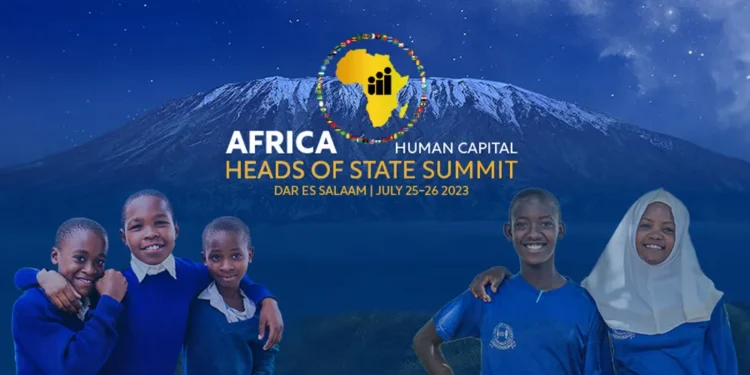On May 19, 2023, the President of Tanzania, Her Excellency Samia Suluhu Hasan launched the Journey to the Summit, referring to the Africa Human Capital Heads of State Summit that will take place in Dar Es Salaam, Tanzania from July 25-26, 2023. President Samia rallied fellow African leaders, policymakers, and other development stakeholders in a call to accelerate investments in people to secure the region’s productivity and a prosperous future.
This will be the first ever Africa Human Capital Summit held at the level of Heads of State, offering a unique opportunity to elevate the discussion to the highest levels of both political and technical levels. The summit aims to come up with country-level commitments to elevate human capital, mobilise urgently needed investments to build human capital and ensure cohesion and commitment to human capital. Focus will also be on mainstreaming the narrative of human capital as a productivity driver and the importance of investing in people as the key to Africa’s development and a prosperous future.
This is a critically important agenda for the continent and the globe and leaders must act now to secure a decent future for everyone. Africa’s people are its greatest asset, and investments in education, health, girls and women, and digital innovations can help the continent maximize its human capital potential, resulting in reduced poverty and improved economies. Recent and projected demographic trends demonstrate a unique opportunity for the region to position itself as a global powerhouse if investment in its people is strengthened.
Africa entered the last decade with significant deficits in human capital, with the lowest average Human Capital Index (HCI) compared to other regions. Sub-Saharan Africa faces several overlapping challenges that put investments in human capital at risk: rising inflation and interest rates, unemployment, and reductions in development assistance; at a time when investments in human capital should be accelerated. Added to these, the region faces enormous fiscal constraints in providing basic services and significant job shortages due to increasing demographic pressures.
The story on demographics is not one-sided. Africa’s rising population is among Africa’s greatest assets. By 2050, the region is projected to have doubled its population to 2.2 billion. Unlike trends in the rest of the world, Sub-Saharan Africa’s population will continue to grow well past 2100. The proportion of those of working age will reach 1.5 billion people by 2075, while that of children aged 0-14 will reach 700 million by 2075. Sub-Saharan Africa now has the largest number of children of school-going age.
Demographics in other parts of the globe have been moving in the other direction for decades now. Timely investments in the education and health status of its population, along with the creation of jobs can unlock the enormous economic growth potential of these demographics and create a demographic dividend.
Accelerating action in building Africa’s human capital—the knowledge, skills, and health that people accumulate over their lives—is an urgent priority. Africa’s future depends on It.
Source: World Bank









